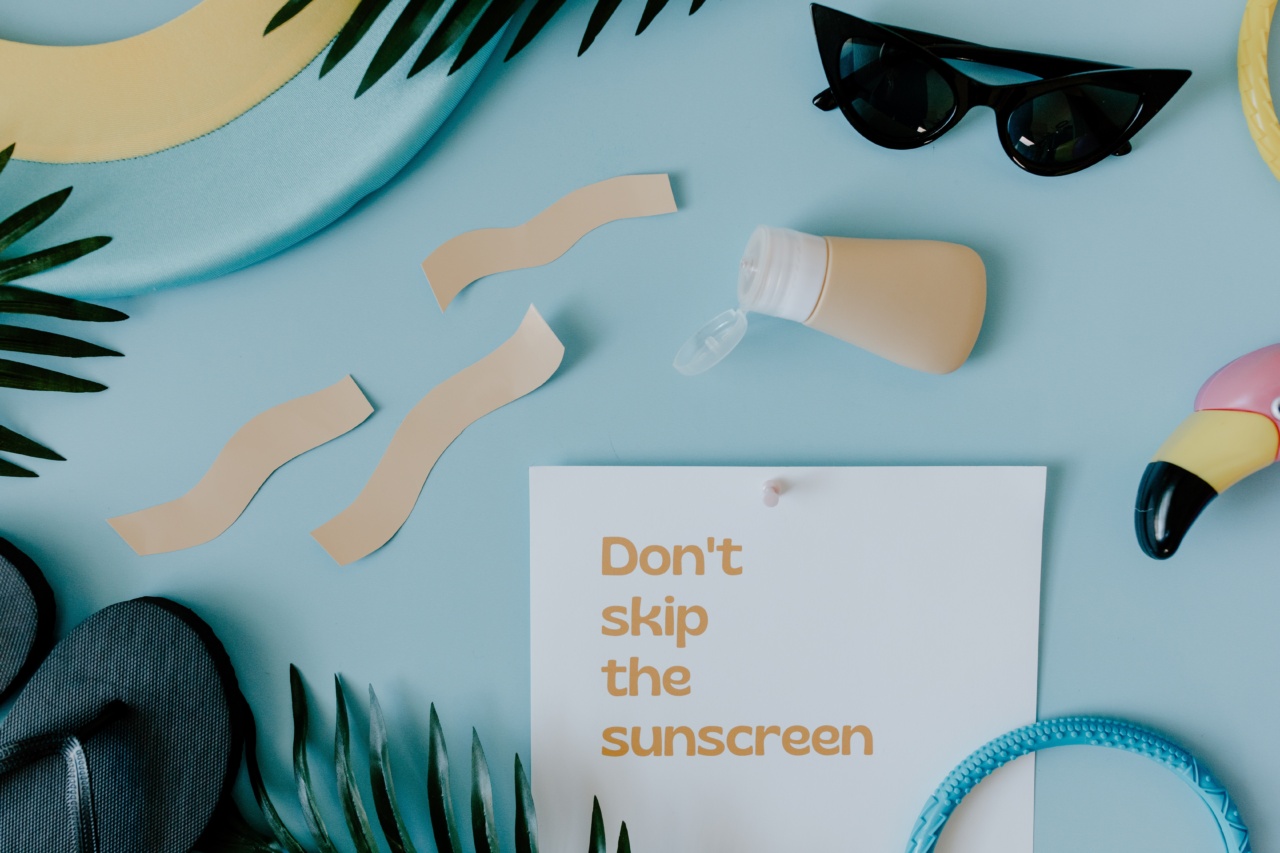Summer is the perfect time to enjoy the sun and get that sun-kissed glow. However, for pregnant women, it is important to protect themselves from the harmful UV rays of the sun that can cause skin damage and increase the risk of skin cancer.
Using sunscreen is a must, but what pregnant women should be aware of are the ingredients in their sunscreen that can affect their health and that of their baby. Let’s delve into the ingredients to avoid in sunscreen when you’re pregnant.
1. Oxybenzone
Oxybenzone is a common ingredient found in many sunscreens. It is a chemical that can get absorbed through the skin and enter the bloodstream.
Studies have shown that oxybenzone can mimic the hormone estrogen and disrupt the endocrine system, affecting the natural hormonal balance in the body. This can lead to developmental and reproductive issues in the fetus. Pregnant women should avoid sunscreens that contain oxybenzone.
2. Retinyl Palmitate
Retinyl palmitate is a form of vitamin A that is commonly used in topical products, including sunscreen.
However, studies have shown that when retinyl palmitate is exposed to sunlight, it can break down and produce harmful free radicals that can damage the skin and increase the risk of cancer. Pregnant women should avoid sunscreens that contain retinyl palmitate.
3. Homosalate
Homosalate is another common ingredient found in many sunscreens. It is a chemical that can disrupt hormone levels in the body.
Studies have shown that exposure to homosalate can lead to decreased fertility, developmental issues, and early puberty in young girls. Pregnant women should avoid sunscreens that contain homosalate.
4. Octinoxate
Octinoxate is a chemical that is used in many sunscreens to absorb UVB rays. However, it has been shown to disrupt hormone levels in the body by mimicking estrogen. This can lead to developmental and reproductive issues in the fetus.
Pregnant women should avoid sunscreens that contain octinoxate.
5. Octocrylene
Octocrylene is a chemical that is used in many sunscreens to absorb UVB and UVA rays. However, it has been shown to break down when exposed to sunlight and produce harmful free radicals that can damage the skin and increase the risk of cancer.
Pregnant women should avoid sunscreens that contain octocrylene.
6. Parabens
Parabens are preservatives that are commonly used in many cosmetics and personal care products, including sunscreen. However, they have been shown to mimic estrogen in the body and disrupt hormone levels.
This can lead to developmental and reproductive issues in the fetus. Pregnant women should avoid sunscreens that contain parabens.
7. Phthalates
Phthalates are a group of chemicals that are commonly used in many personal care products, including sunscreen. They have been shown to disrupt hormone levels in the body, leading to developmental and reproductive issues in the fetus.
Pregnant women should avoid sunscreens that contain phthalates.
8. Nanoparticles
Nanoparticles are tiny particles that are used in many sunscreens to provide protection from UV rays. However, they can penetrate the skin and enter the bloodstream, leading to potential health issues.
Pregnant women should avoid sunscreens that contain nanoparticles.
9. Fragrance
Fragrance is commonly used in many personal care products, including sunscreen, to give them a pleasant scent. However, fragrance can contain a mixture of chemicals that can trigger allergies, headaches, and skin irritation.
Pregnant women should avoid sunscreens that contain fragrance.
10. Methylisothiazolinone (MIT)
MIT is a preservative that is commonly used in many personal care products, including sunscreen. It has been shown to cause skin irritation and allergic reactions. Pregnant women should avoid sunscreens that contain MIT.
Conclusion
Choosing the right sunscreen is important for pregnant women to ensure that they and their babies are safe from the harmful effects of the sun.
Sunscreens that contain the ingredients mentioned above should be avoided, and instead, opt for natural and organic sunscreens that do not contain harmful chemicals. Always read labels carefully and consult with your doctor before using any sunscreen or other products during pregnancy to ensure safety for you and your baby.






























